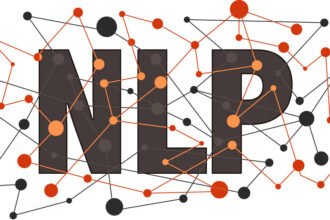At Smart Data Collective, we strive to have a balanced conversation about the impact of big data. There are obviously a lot of beneficial changes that big data has spurred. However, big data has also created some important challenges as well, which we feel duty-bound to discuss.
One of the issues that we feel the need to talk about is the fear of automation. Advances in artificial intelligence have helped automate many functions that used to require an employee. There are valid concerns that automation is going to displace a lot of workers.
Democratic presidential hopeful Andrew Yang has talked extensively about the fears of automation. As a former technology executive, he is fairly familiar with these concerns. This has inspired him to introduce a plan for a universal basic income (UBI).
However, a lot of skeptics are claiming that these fears are overblown. They have pointed out that technological advances have not historically caused a significant reduction in the workforce participation rate. In fact, the workforce participation rate is higher today than it was before women started entering the workforce in the 1980s. Technology is not the reason that it increased, but it certainly did not put people out of work either.
Virtual assistants are often curious about the impact that big data and artificial intelligence will have on their profession. Is big data going to put them out of work? Or is it simply going to make them more productive?
McKinsey has published some research about the trends automation is creating in the workplace. They pointed out that automation is not just the start of some horrific dystopian future. The very first point McKinsey points out is that it creates a lot of new opportunities for the economy as a whole. It isn?t just some asset for wealthy business owners.
Performance Lab has discussed these trends as well. Their business focuses on software testing, which is a process that their less advanced competitors often outsource to virtual assistants. They have debated whether this will influence the software testing companies that rely on them.
But what is the impact on the virtual assistant profession, specifically? That might be hard to quantify, since the field is not precisely defined by most BLS experts. However, the data that we do have available sheds some light on the topic and shows it isn?t as serious as we might think.
Concerns about big data hurting employment of virtual assistant seems overblown
We have paid close attention to developments in the virtual assistant profession since 2010. Over that time the demand for virtual assistants has grown. The growth rate is actually higher than the average for all professions. Of course, we had to read between the lines a bit to draw this conclusion. The occupational Outlook guide published by the Bureau of Labor Statistics does not specifically track employment of virtual assistants. However, you can easily find employment figures for related occupations, which helps us form an accurate estimate.
During that time, new technology has constantly been introduced to help them do their jobs better. This has actually had two important benefits:
- Virtual assistants are able to provide more value to their clients and employers. People that hire virtual assistants are constantly looking to get a better ROI. New technology that relies on big data and artificial intelligence has made that possible. Virtual assistants that do social media marketing have started using Instagram bot tools to simplify their tasks.
- Big data has made the work less mundane. This seems to be helping keep virtual assistance from getting burnt out.
Conclusion
There is always a possibility that things could change. However, our current data suggests that this technology is actually benefiting the profession.
Also, if you take a close look at the McKinsey report, you will see that the impact of AI on the virtual assistant industry seems to be lower than most other fields. The percentage of the total impact from AI in this field seems to be about 30% (if we look at similar professions). In fields like mining and logistics, the impact is twice as high.
Therefore, even if big data and AI are a bane for the virtual assistant industry, the impact is not going to be as significant as some doomsayers seem to suggest.









